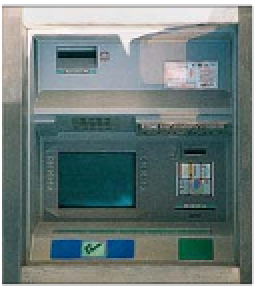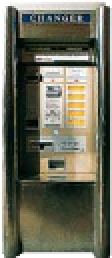Travel Reference
In-Depth Information
Banking and Currency
Exchanging and obtaining money pose
no problems in Israel and the Holy
Land. Cash and traveller's cheques can
be exchanged at banks, exchange offices
and in many hotels. Credit cards are widely
accepted and can be used to obtain funds.
The only issues to be aware of are the greatly
varying levels of commission charged on transactions,
and the limited opening hours of banks.
Mizrahi
bank logo
Official money exchange office
CURRENCY
BANKS
Jordan and Sinai banking
hours are similar to Israel,
except that they are closed
only on Fridays.
Israel's national currency is
the new Israeli shekel (NIS),
referred to simply as the
shekel. It is also the currency
in the Palestinian Autonomous
Territories, although there are
plans to introduce a Palestinian
national currency in the near
future. Jordan has dinars (JD),
while the currency in Sinai is
the Egyptian pound (LE).
These currencies are only
valid in their home countries
so, for example, you cannot
spend excess Israeli shekels
in Jordan. Exchange rates
between the three tend to
be very bad. This means, for
example, that it is wise to use
up all your shekels before
leaving Israel and then to
exchange dollars for dinars
or pounds on arriving in
Jordan or Egypt.
Banks in Israel, Jordan and
Sinai will exchange all
major European currencies, but
the most welcome curre
n
cy
of all is the US dollar. ATMs
EXCHANGE OFFICES
A
(automatic cash dispensers)
linked into international bank-
ing networks, such as Cirrus
or Plus, are widespread in
Israel. You will find
them in the foyers
of most banks. These
machines are less
common in Jordan
and Sinai, and found
only in Amman, Petra
and Sharm el-Sheikh.
Some banks in Israel
also have automatic
currency exchange
machines, which are
accessible 24 hours a
day. The drawback is
that these machines
usually charge a high
transaction fee combined with
a very poor rate of exchange.
Jerusalem's banking district
is centred on Zion Square, at
the bottom of Ben Yehuda
Street in the New City. Banks
are generally open from
8:30am to 12:30pm, reopening
for another hour or two from
around 4pm (but not on
Wednesdays). They are shut on
Fridays and Saturdays. In
The banks often charge a
considerable commission on
currency exchanges; one way
to avoid this is to use an
official exchange office
such as
Change Spot
.
These places charge
no commission. They
also tend to be open
much longer hours
than the banks (from
9am to 9pm in some
cases). Such exchange
offices in Jerusalem
can be found mainly
on Jaffa Road and Ben
Yehuda Street. There
are also several small
Arab exchange
offices just inside
Jaffa and Damascus gates in
the Old City.
In Jordan, central Amman
is full of small exchange
offices, but there are not so
many outside the capital. You
can use one of the big hotels,
but beware of the commission
they may charge.
Automatic currency
exchange machine
DIRECTORY
EXCHANGE OFFICES
Change Spot
5 Nordau Street, Haifa
Tel
(04) 864 4111.
2 Ben Yehuda St, Jerusalem.
Tel
(02) 624 001
l
.
4 Salomon St, Jerusalem.
Tel
(02) 624 2166.
l
32 Jerusalem St, Safed.
Tel
(04) 682 2777.
13 Ben Yehuda St, Tel Aviv.
Tel
(03) 510 0573.
TRAVELLER'S CHEQUES
AND CREDIT CARDS
l
140 Dizengoff St, Tel Aviv.
Tel
(03) 524 3393.
l
www
.changespot.co.il
Traveller's cheques can be
exchanged at banks but
commission is charged per
cheque. Better to cash them
at exchange offices, where no
commission is charged at all.
Major credit cards, such as
VISA, Master Card, Diners Club
and American Express are
widely accepted throughout
Israel, Jordan and Sinai in
shops, restaurants and hotels.
If you have your PIN number
you can draw cash from ATMs.
Money Net
84 Paulus VI St,
Nazareth.
Tel
(06) 655 2540.
l
ATM machine at an Israeli bank
A




















